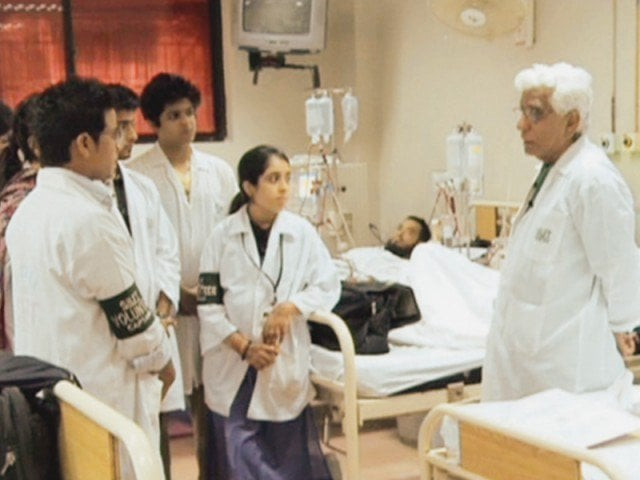‘Promote organ donation to end illegal trade’
Two-day conference ends with numerous suggestions to curb illegal organ transplants

PHOTO: EXPRESS/FILE
The briefing was held by the coordination committee appointed by the Supreme Court and included the Law and Justice Commission of Pakistan secretary, additional attorney-general of Pakistan and SIUT head Prof Adibul Hassan Rizvi.
The SC directed Prof Rizvi to come up with solutions and methods to curb illegal organ trade in Pakistan after consultation with experts and stakeholders. The working group unanimously adopted some resolutions at conference. These were that the most effective way to curb the commercialisation and sale of organs and tissue is for the state, civil society, medical practitioners and healthcare providers to proactively promote donation of organs to be harvested from persons certified as brain dead in accordance with internationally accepted protocols. Another recommendation was that national and provincial registries be established at the state’s expense to establish a database and bank of organ donors as well as potential recipients and to prescribe methods for the safe and efficient harvesting of such organs.
Conference at SIUT mulls ways to promote organ donation after death
At the same time a transparent system for their equitable allocation and transplantation needs to be put in place and for this, appropriate rules can be formulated under the existing national and provincial legislation on transplantation of organs and tissues.
The state should support public hospitals in providing free of charge transplantation to all patients and provide lifelong care to donors and recipients. The capacity of all monitoring authorities should be exponentially enhanced.
The working group also recommended that the state should institute mechanisms that enable all citizens wanting to join the donor programme to exercise the option of making a lifetime gift of such organs. Deceased donors and their families should be publicly recognised through the award of medals and certificates.
Recognising that the state is duty bound to ameliorate poverty and exploitation that compels a person to agree to the sale of his or her organs, the working group recommended that victims should be encouraged to come forward as whistle blowers and law enforcement agencies and prosecutors ought to establish guidelines on when to prosecute donor whistle blowers or to make them witnesses against others charged with partaking in unlawful transplants or aiding or abetting such an activity.
SC forms commission to help curb illegal organ trade
Law enforcement agencies and prosecutors have expressed their frustration at the provisions of the federal and provincial laws on transplantation dealing with the cognisance of offences under the respective acts. The monitoring authority must ensure that it acts with all deliberate speed while dealing with complaints brought to its knowledge from any source and that suitable rules are framed to prescribe the manner of filing complaints with the monitoring authority and for their expeditious disposal, the group recommended.
The working group also suggested that transplants conducted at places other than establishments recognised under the Transplantation Acts and Rules should be punished under the regular penal laws and an additional section should be added in the Pakistan Penal Code regarding this. An appropriate amendment should also be made in Schedule II of the Code of Criminal Procedure, making such an offence non-compoundable, non-bailable and cognisable and to the schedule of the Federal Investigation Agency Act, they said.
Another suggestion made was that the monitoring authority, while granting registration or renewal, should reserve the right to review the amount charged by a registered establishment according to prescribed criteria and to audit the transplant data and accounts maintained by the establishment. At the time of grant of registration to an establishment at the time of renewal the monitoring authority must obtain the no-objection certificate of the relevant healthcare commission.
CJP pledges to donate organs to SIUT after death
In case of brain dead donors, the respective police surgeons should be provided guidelines of the procedures to be followed before removing organs of deceased donors in situations where medico legal cases are pending and in such cases where police surgeons are part of the procedures.
For the effective implementation of the transplant law, law enforcement agencies, hospitals and civil society organisations should establish vigilance committees to take immediate action and promptly coordinate with the secretary of the monitoring authority, suggested the working group. The secretary should be required to dispose of complaints within 24 hours and all monitoring authorities should establish round the clock call centres where violations can be reported, they said.
Another recommendation was that registration and recognition should be in respect of the designated premises where organs and tissues are removed or transplanted and recognised establishments may only operate from the designated premises. A fresh registration shall be required where establishment opens, changes or adds to its place of operation. The final suggestion was that all monitoring authorities should ensure that the evaluation committees of recognised establishments enjoy credibility and periodically audit their decisions.


















COMMENTS
Comments are moderated and generally will be posted if they are on-topic and not abusive.
For more information, please see our Comments FAQ